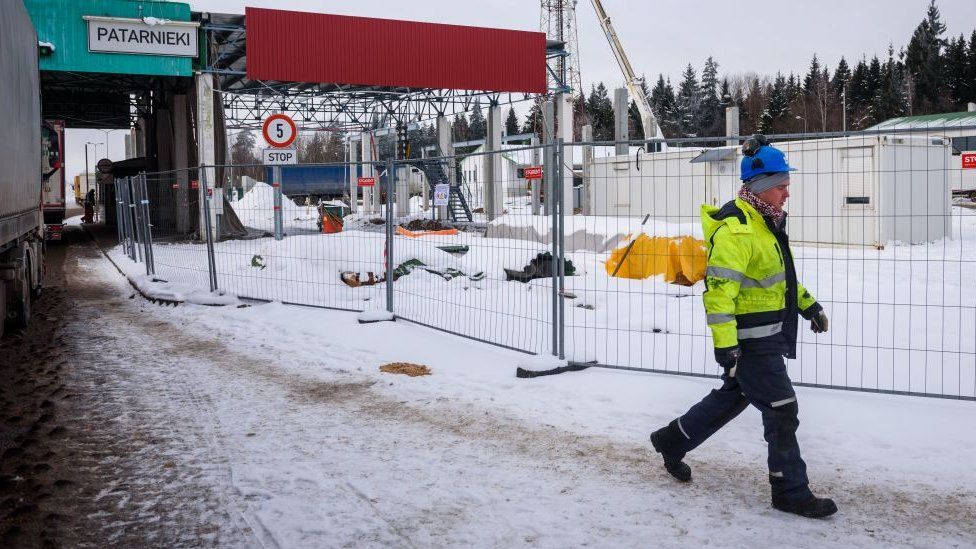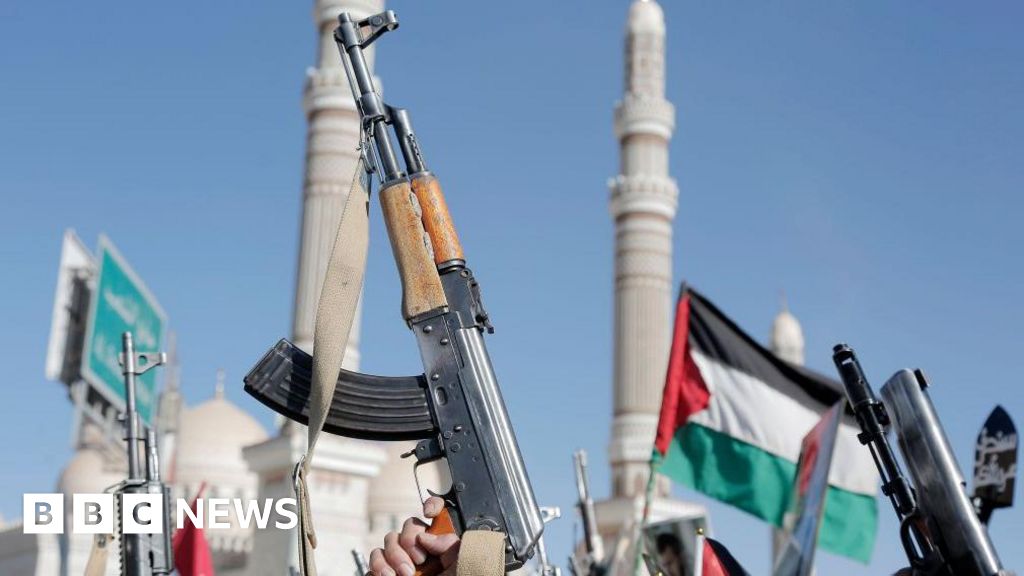ARTICLE AD BOX
 Image source, Getty Images
Image source, Getty Images
A worker walks near a construction site at the Latvian-Belarusian border (file image)
Latvia "violently" pushed migrants back into Belarus and even subjected some to torture, Amnesty International alleges.
A new report by the rights group says people trying to cross from Belarus into neighbouring Latvia were beaten and humiliated by border authorities.
Latvia's government denied officials used undue force, and said the measures were due to "illegal crossings".
Last year it declared a state of emergency, which suspended the right to seek asylum in four border areas.
Latvia says that means so-called pushbacks are allowed, even though they contravene EU law.
The state of emergency, which is still in place, was introduced after a surge in people trying to cross over the border from Belarus.
Amnesty International's report details alleged abuses of power, arbitrary detention, ill-treatment, unsafe and unsanitary conditions and even torture.
It quotes an Iraqi man named Zaki, who said he was pushed back and forth at the border more than 150 times in three months, including sometimes as many as eight times per day.
Another Iraqi man, Adil, said he and fellow migrants slept in the forest on the snow.
"We used to light a fire to get warm, there were wolves, bears but because we had fire... they [were] afraid," he is quoted as saying in the report.
"That is how we survived from it, but they [Latvian authorities] did not provide us with special clothes for the weather," he added.
Amnesty reports that migrants, including children, were held arbitrarily in undisclosed sites in the Latvian forest, and then returned to Belarus.
Many faced beatings and electric shocks with tasers, including on their genitals. Some were returned "voluntarily" to their home countries.
"The Latvian authorities have left men, women and children to fend for themselves in freezing temperatures, often stranded in forests or held in tents," said Eve Geddie, Amnesty's Director of the European Institutions Office.
"They have violently pushed them back to Belarus, where they have no chance of seeking protection. These actions have nothing to do with border protection and are brazen violations of international and EU law."
Amnesty added that Latvia's treatment of migrants from Belarus stood in stark contrast to its "swift mobilisation" to provide refuge for more than 35,000 Ukraine migrants.
Kristaps Eklons, Latvia's Minister of the Interior, defended the government's measure on the border in a written response included in the report.
"The [state of emergency] order was adopted to ensure the internal security of the state," he said.
Mr Eklons added that authorities had found no evidence of officials using "physical force of special means" against those crossing the border.
Last year Latvia, Poland and Lithuania all saw a huge surge in the number of people trying to enter their countries from Belarus.
The European Union accused the country's leader Alexander Lukashenko of orchestrating the problem in retaliation against sanctions, which were introduced in response to a crackdown on mass protests.
The BBC uses the term migrant to refer to all people on the move who have yet to complete the legal process of claiming asylum. This group includes people fleeing war-torn countries, who are likely to be granted refugee status, as well as people who are seeking jobs and better lives, who governments are likely to rule are economic migrants.

 2 years ago
19
2 years ago
19








 English (US) ·
English (US) ·